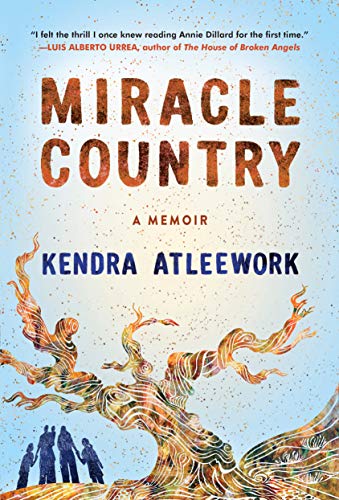Atleework grew up in the forbidding landscape of Owens Valley, in the rain shadow of the Sierra Nevada Mountains. It is an arid, unforgiving place prone to drought and wild fires, especially given the effects of climate change. But there is a beauty in the land as well and it holds the history of both her happy family and the devastating loss of her mother when Atleework was just 16. She writes the personal story of her family and the story of the Native people who preceded her family in the area; she addresses California land and water rights, the devastation that people are wreaking, and the environmental history of the area as well. Even when she moved far from Swall Meadows, she carried the place deep within her, eventually realizing that she has to return to the place that formed her and confront both its past and future as well as her own.
The writing here is very stream of consciousness and meanders far and wide. This is problematic since there is no strong through narrative keeping the writing focused, or at least reining it in from the many digressions. The lack of focus also allows the reader (or at least this reader) to mentally wander off as well. There are strange, impenetrable metaphors that feel forced: "In a dangerous world, the sustained desire of our mother's life was a bag of marbles she could hand to lost boys, to her son and daughters--to impart to us some design that might teach us care and yet let joy master fear. Those marbles were, all along, a token meant to tell us we could always come home." (p. 120) The different pieces of the narrative, the personal, the historical, and the environmental are uncomfortably mashed together rather than flowing organically, resulting in an occasionally jarring reading experience. That the whole thing is also non-linear adds to the discombobulation and disconnectedness of the reader. I know there must have been a kernel of what attracted me to the book in the first place somewhere in there but I ultimately wasn't interested enough to turn over enough desert stones to find it. There do seem to be quite a few people who rave about the book so perhaps it's a me problem rather than a book problem.
Thank you to LibraryThing Early Reviewers for a copy of this book to review.







No comments:
Post a Comment
I have had to disable the anonymous comment option to cut down on the spam and I apologize to those of you for whom this makes commenting a chore. I hope you'll still opt to leave me your thoughts. I love to hear what you think, especially so I know I'm not just whistling into the wind here at my computer.